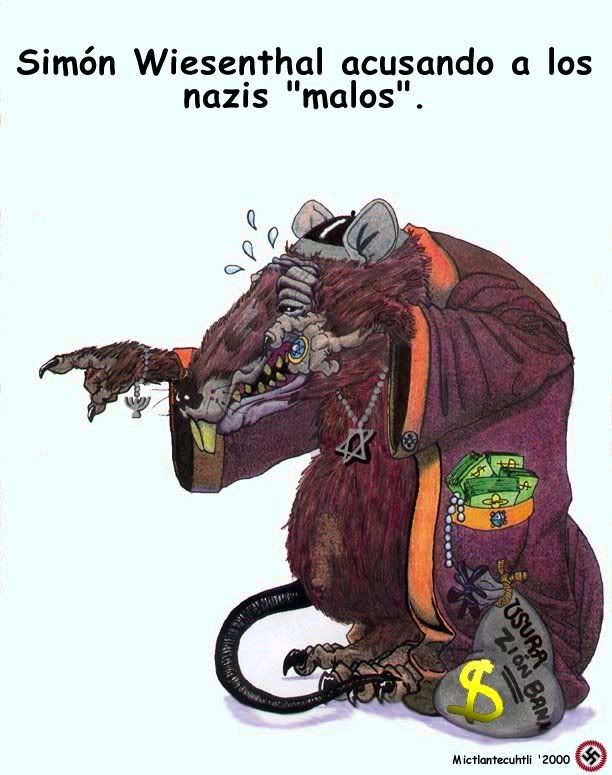Simon Wiesenthal--Rest In Peace
For many, he was an avenging angel, relentlessly tracking down Nazis and others who collaborated in attempting to turn the "final solution" into a reality during WW II. For others he was a fraudulent charlatan, forging drawings, concocting "sightings" of Nazi fugitives and claiming credit for successes achieved by others.
Far beyond any of his own achievements, Wiesenthal became the international symbol of conscience seeking justice in the wake of the war crimes committed against Jews during the Third Reich.
Besides his renown for tracking down individual Nazi criminals around the world, Wiesenthal's greatest success may have been the massive documentation of Nazi crimes and the men who committed them that he compiled after the War.
Wiesenthal's obituary in today's New York Times is both a cogent and concise compilation of his life, his achievements, his disappointments, his renown and the complexity of his character.
For the Nazi apologists who deny that the holocaust actually took place, Wiesenthal became the symbol of what they considered to be Jewish deception and lies.
He was both hated and feared, as well as respected and honored. It is said that he even took a bit of pride in hearing how former Nazi fugitives would threaten one another by saying that they might tip Wiesenthal off as to someone's whereabouts.
To his eternal credit, Weisenthal collected criminal evidence while it still was there to be collected and virtually created an international demand for justice following the defeat of Nazi Germany in 1945. He was a lone and controversial voice throughout his life. It is beyond any doubt whatsoever that, without the efforts of Simon Weisenthal, a good many men who had collaborated with evil would have lived out their lives in peace when, in fact, they had no right to do so.
The NY Times obituary ends with this wonderful paragraph:

Far beyond any of his own achievements, Wiesenthal became the international symbol of conscience seeking justice in the wake of the war crimes committed against Jews during the Third Reich.
Besides his renown for tracking down individual Nazi criminals around the world, Wiesenthal's greatest success may have been the massive documentation of Nazi crimes and the men who committed them that he compiled after the War.
Wiesenthal's obituary in today's New York Times is both a cogent and concise compilation of his life, his achievements, his disappointments, his renown and the complexity of his character.
For the Nazi apologists who deny that the holocaust actually took place, Wiesenthal became the symbol of what they considered to be Jewish deception and lies.

"Simon Weisenthal accuses the 'bad' Nazis" (note swastika in corner)
He was both hated and feared, as well as respected and honored. It is said that he even took a bit of pride in hearing how former Nazi fugitives would threaten one another by saying that they might tip Wiesenthal off as to someone's whereabouts.
To his eternal credit, Weisenthal collected criminal evidence while it still was there to be collected and virtually created an international demand for justice following the defeat of Nazi Germany in 1945. He was a lone and controversial voice throughout his life. It is beyond any doubt whatsoever that, without the efforts of Simon Weisenthal, a good many men who had collaborated with evil would have lived out their lives in peace when, in fact, they had no right to do so.
The NY Times obituary ends with this wonderful paragraph:
He was often asked why he had become a searcher of Nazi criminals instead of resuming a profitable career in architecture. He gave one questioner this response: "You're a religious man. You believe in God and life after death. I also believe. When we come to the other world and meet the millions of Jews who died in the camps and they ask us, 'What have you done?' there will be many answers. You will say, 'I became a jeweler.' Another will say, 'I smuggled coffee and American cigarettes.' Still another will say, 'I built houses,' but I will say, 'I didn't forget you.' "I trust that many will join with me is promising that, in a similar way, we will not forget Simon Weisenthal.


<< Home